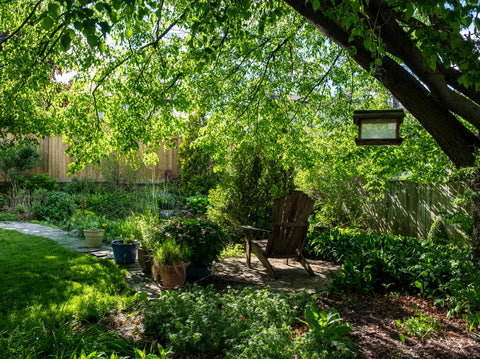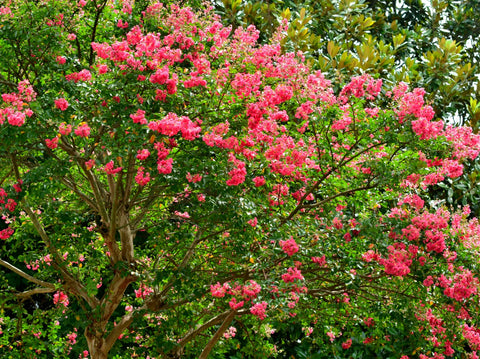Summer can be tough on your garden, with soaring temperatures and intense sunlight putting your plants at risk of heat stress. But don't worry! With the right strategies, you can keep your garden thriving even during the hottest days. Here are some tips on shading, mulching, and the proper way of watering plants to protect your garden from extreme heat. Plus, we'll highlight certain types of plants that may need extra attention in the summer.
1. Shading Your Plants
Providing shade is one of the most effective ways to protect your plants from heat stress. Here's how you can do it:
- Temporary Shade Cloths: Use shade cloths to create temporary shelters over your plants. These cloths can reduce the amount of direct sunlight, lowering the temperature around your plants.
- Umbrellas and Garden Canopies: Set up garden umbrellas or canopies to shield larger areas. This is especially useful for protecting delicate plants that can't handle full sun.
- Strategic Planting: Plant taller plants or trees to provide natural shade for smaller, more vulnerable plants, which is one of the essential summer heat care tips for your trees. This can also create a microclimate that's cooler and more humid.
2. Mulching
Mulching is a fantastic way to keep your soil cool and retain moisture. Here's why it works and how to do it:
- Retain Moisture: A thick layer of mulch helps to lock in moisture, preventing the soil from drying out too quickly.
- Regulate Temperature: Mulch acts as an insulating layer, keeping the soil temperature more stable and protecting roots from extreme heat.
- Reduce Weeds: Mulching also helps to suppress weed growth, which can compete with your plants for water.
Types of Mulch: Consider adding mulch around trees for optimal growth.
- Organic Mulch: Straw, grass clippings, wood chips, and compost.
- Inorganic Mulch: Gravel, stones, and plastic sheeting (though less environmentally friendly).
3. Watering Techniques
Proper watering is crucial during hot weather. Here are some tips to ensure your plants stay hydrated:
- Water Deeply: Water your plants deeply and thoroughly. Aim for the water to penetrate at least 6 inches into the soil. This encourages roots to grow deeper, making the plants more resilient. This is the proper way of watering plants during summer.
- Morning Watering: Water your plants early in the morning everyday. This allows the water to soak into the soil before the heat of the day causes evaporation. If you can't water in the morning, late evening is the next best option.
- Avoid Leaf Wetting: Try to water the soil directly rather than wetting the leaves. Wet leaves can lead to fungal diseases, especially in hot, humid weather.
Extra Attention for Certain Plants
Some plants are more susceptible to heat stress and may need extra care:
- Hydrangeas: These water-loving plants may wilt quickly in the heat. Ensure they are watered deeply and mulched well.
- Roses: Roses can suffer from heat stress, leading to wilting and reduced blooming. Water them deeply and provide afternoon shade if possible.
- Heat Tolerant Plants: Consider incorporating plants that tolerate sun and heat, such as drought resistant full sun perennials and heat tolerant full sun trees, to reduce maintenance.
Wrapping it Up: Protecting Your Plants from Heat Stress
Protecting your plants from heat stress involves a combination of shading, mulching, and proper watering techniques. By taking these steps, you can ensure that your garden remains vibrant and healthy, even during the hottest days of summer. Remember, some plants may need extra attention, so keep an eye on their needs and adjust your care routine accordingly.
Ready to give your plants the best care this summer? Explore our range of quality mulch and watering tools to help protect your garden from heat stress. We also offer a variety of heat and drought resistant shrubs and trees to ensure your garden thrives. Don't forget to take advantage of our 15% off for first-time customers!


